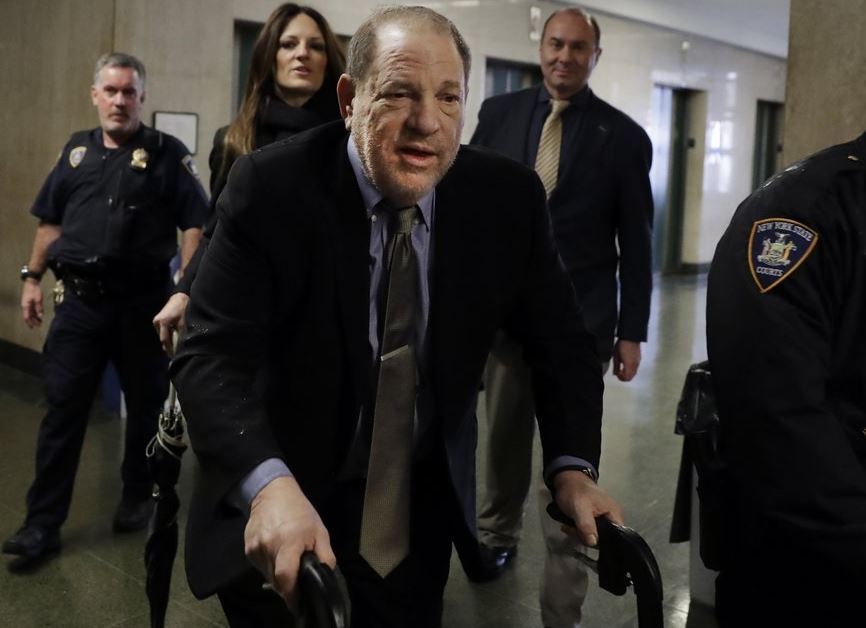
Harvey Weinstein arrives at court in his rape trial, in New York, Friday, Feb. 7, 2020. (Photo: AP)
With Harvey Weinstein’s fate hinging largely on what his accusers remember about what they say were sexual assaults years ago, his lawyers Friday turned to an expert known in the world of psychology for her studies of false, repressed and unreliable memories.
“It doesn’t take a PHD to know that memories fade over time,” cognitive psychologist Elizabeth Loftus told jurors at Weinstein’s New York City rape trial.
As memories fade, she said, people become more vulnerable to “post-event information,” including media reports that can distort what they remember. They also can distort their own memories with inferences and guesses about past events.
False memories “can be experienced with a great deal of detail, a great deal of emotion, even though they’re false,” she said. “The emotion is not a guarantee you’re dealing with an authentic memory.”
Loftus, 75, is expected to be the focal point Friday, a day after prosecutors rested their case against Weinstein after more than two weeks of testimony.
Co-author of the 1994 book “The Myth of Repressed Memory: False Memories and Allegation of Sexual Abuse,” she has been a controversial figure in her field. That’s in part because her work on behalf of big-name clients like serial killer Ted Bundy and because her testimony has often helped undermine people who say they are victims of sexual abuse or violence.
Weinstein is charged with raping a woman in a Manhattan hotel room in March 2013 and forcibly performing oral sex on a different woman in 2006. Weinstein, 67, has maintained any sexual encounters were consensual.
Weinstein’s lawyers are aiming to raise more doubts about the women’s allegations after highlighting inconsistencies in some of their accounts during cross-examination questioning about encounters that, in some cases, happened a decade or two ago.
But the judge barred Loftus from testifying about memories specific to sexual interactions, and she said that she also was not asked to evaluate any of the accusers or their testimony.
In her work on behalf of Ted Bundy, Loftus wrote later, she seized on “leading and suggestive questions” by investigators and “hesitations and uncertainties on the part of the victim” as signs of muddled memories.
On the stand Friday, she sounded a similar note, telling jurors that interactions with law enforcement “can lead people to want to produce details,” she said.
“Some can be accurate and some can be false and inaccurate,” Loftus said.
When prosecutor Joan Illuzzi-Orbon asked the witness whether she was originally asked to be a defense consultant, rather than a witness, she responded, “I don’t remember what I was asked exactly.”
“Is that due to post-event information?” Illuzzi quipped.
Weinstein’s lawyers skipped plans to start Friday off by calling a prolific Hollywood writer and director to the stand to testify about rape accuser Annabella Sciorra’s prescription drug use during a movie shoot in the early 1990s.
Warren Leight was at the courthouse on Thursday, but now it appears he will not testify.


